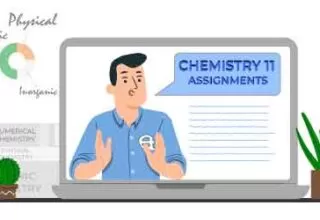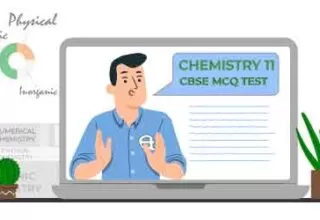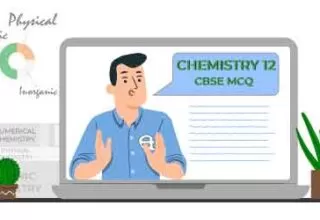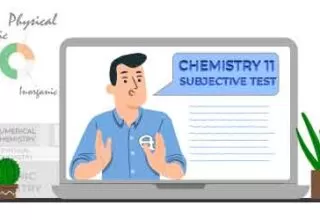Chemistry Practical
Table of Contents
Enhancing your grasp on chemistry practical involves not only understanding their logic but also perfecting the art of documenting them.
Doing so not only clarifies concepts but also aids in optimal retention and improved exam performance. To achieve this, follow these effective guidelines:
1. Grasp the Purpose of Each Practical
Class 11, Chemistry Practical experiments focus on fundamental techniques and concepts such as titrations, salt analysis, and basic organic reactions. The objective is to familiarize yourself with common laboratory practices and reactions.
Class 12, Chemistry Practical experiments delve deeper, covering topics like redox reactions, kinetics, and more advanced organic chemistry. These aim to reinforce theoretical knowledge with hands-on experience.
2. Break Down Each Experiment Logically
Step 1:
In Chemistry Practical, understand the Objective
Clearly determine the purpose of the experiment: is it to demonstrate a reaction type, a specific color change, or measure concentration?
Step 2:
The Chemistry Practical are designed to gain a Comprehension of the Theory Behind It
Relate the experiment to theory you have studied. For example, if performing an acid-base titration, recall the concept of neutralization and pH. This will aid in predicting outcomes and comprehending the reasoning behind certain steps.
Step 3:
In Chemistry Practical, familiarize Yourself with Materials and Chemicals
Understand the properties (acidic, basic, oxidizing, reducing) of the chemicals and safety precautions. This ensures proper handling and understanding of the materials chosen.
Step 4:
Understand Each Step of the Procedure
Do not simply memorize steps; question the significance of each one. For example, why is an indicator added, or why is it necessary to rinse the burette in a titration? This logical approach makes the experiment more predictable.
3. Advantages of Understanding Practical Logic
Improved Retention: Grasping the underlying principles allows for remembrance of procedures without rote memorization.
Enhanced Problem-Solving Skills: In exams, logical understanding enables confidence when faced with variations in practical.
Enhanced Safety and Accuracy: Gaining Insight Behind Procedures for Reduced Errors and Increased Safety
Impact: Application of practical knowledge in real-life contexts elevates the attraction of studying chemistry.
Write Chemistry Practical Reports Effectively
Title and Objective:
Commence with a precise title and a succinct statement of the experiment’s aim.
Apparatus and Chemicals Utilized:
Specify all constituents and quantities used. Note any special preparation instructions, such as freshly prepared solutions.
Method:
Clearly outline each step in a logical sequence.
Utilize bulleted or numbered lists to enhance readability.
Include safety precautions and observations (e.g., changes in color, temperature fluctuations).
Observations and Computations:
Accurately record data in tables (especially for reactions or titrations).
Provide step-by-step calculations to facilitate understanding for evaluators.
Results: Sum up the findings (e.g., concentration of a solution, confirmation of a specific ion).
Conclusion: Restate the objective and assess whether the results aligned with expectations, briefly acknowledging any discrepancies.
Possible Pitfalls and Preventative Measures: List potential sources of error and precautions to ensure precision (e.g., preventing contamination, using clean apparatus).
Suggestions for Handling Practical Work:
Stay Systematic: Maintain organized notes and observations.
Be Inquisitive: Always question the rationale behind each step to enhance comprehension.
Practice Calculations: Practical exercises often require calculations involving molarity, normality, and other measures. Familiarize yourself with the relevant formulas and units.
This approach to practical work infuses it with deeper significance and makes it more manageable, particularly when preparing for exams and lab assessments.
COURSE DESCRIPTION
Chemistry Practical:
The course is designed for the students of class 11 and class 12 preparing for the JEE / NEET / CBSE / State board exam. The course is based on the latest CBSE curriculum for the chemistry practical exams. The course is divided into.
- Discussion of concepts
- Video lectures demonstrating practical.
- Calculations explanation
- Viva based Questions.
LEARNING OUTCOMES
- To understand practical’s for CBSE / JEE / NEET and other competitive exams!
- Video Lectures demonstrate the concepts involved.
- The course is designed to make you enjoy the study of practical chemistry.
- The course is designed to evolve your true potential.
- Practical learning experience.
Our Other Courses
You May Also Like
Become a Member
YouTube Channel
Telegram Channel
ABOUT INSTRUCTOR

B.Sc (honors) Chemistry, M.Sc. (Organic Chemistry), Gold Medalist from Gujarat University Ahmedabad. Passionate educator, helping aspirants for IIT-JEE, NEET-UG, AP-Chemistry, IB-HL Chemistry, BIT-SAT, CBSE, and ICSE to achieve their ambitions






